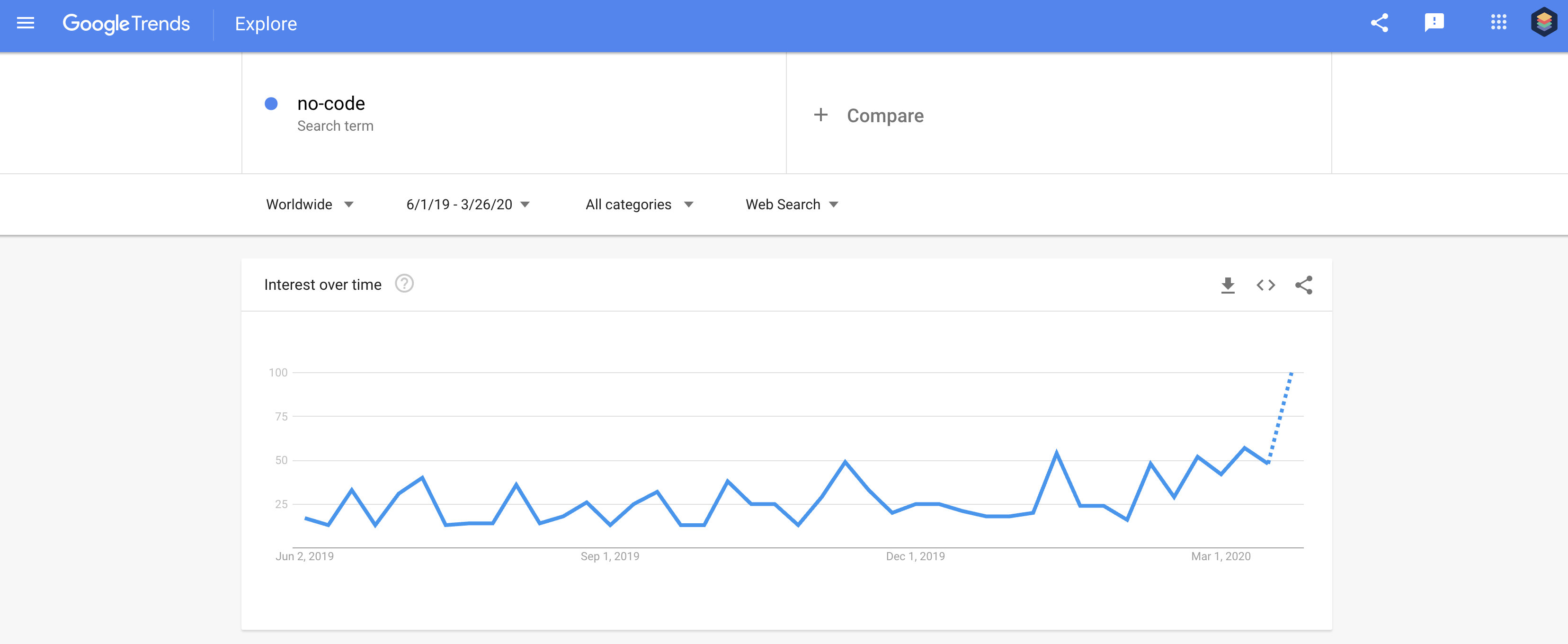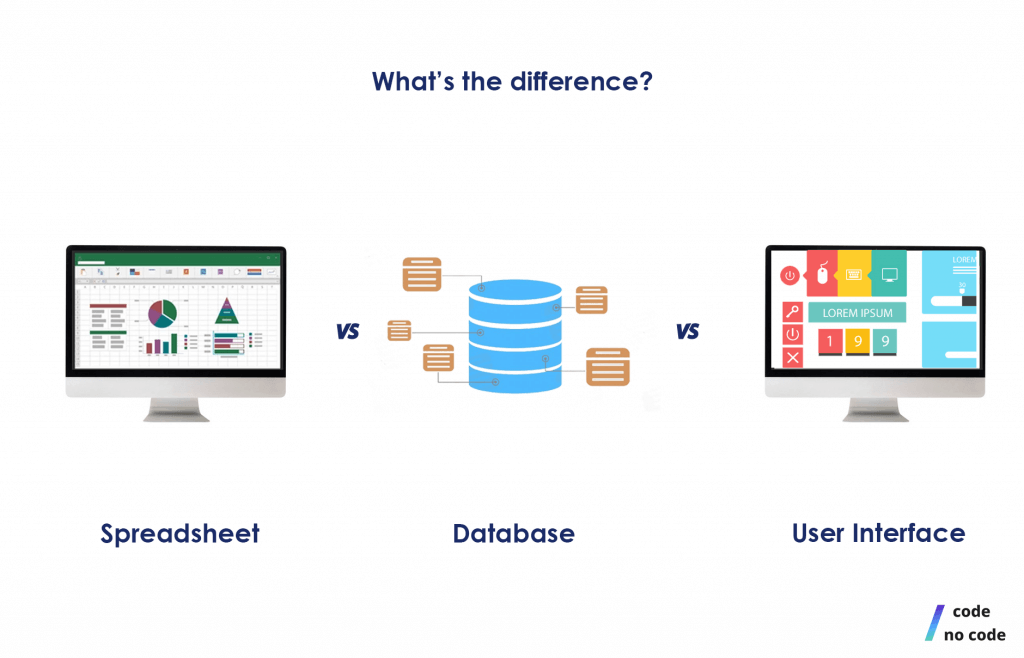Why No-Code is the Future of Open System Database Development for Companies
Why No-Code is the Future of Open System Database Development for Companies
Blog Article
Checking Out the Advantages of Scalable Data Sources That Require No Coding Skills for Reliable Information Management Solutions
The introduction of scalable databases that eliminate the necessity for coding abilities presents a transformative opportunity for companies seeking reliable data management solutions. As we consider the implications of such innovations, it comes to be vital to take a look at how they can improve the landscape of data administration and drive lasting development in a competitive atmosphere.
Enhanced Availability for Users
Enhanced ease of access for customers is a vital aspect of scalable data sources, making certain that information management systems are user-friendly and instinctive. In an age where data-driven decisions are paramount, accessibility permits a bigger series of customers, consisting of those without comprehensive technological knowledge, to involve with database systems properly. This democratization of information access assists in improved collaboration throughout departments, empowering staff members to extract insights and make notified decisions.
Straightforward user interfaces, such as drag-and-drop features and aesthetic data representation, simplify complicated data communications. These improvements decrease the learning contour related to traditional data source monitoring, allowing users to concentrate on leveraging data as opposed to coming to grips with technical intricacies. Furthermore, scalable data sources typically integrate real-time analytics and customizable control panels, supplying users with instant insights customized to their details demands.

Cost-Effectiveness and Resource Financial Savings
Effective information management not just rests on ease of access but likewise on cost-effectiveness and resource cost savings. Scalable databases designed for customers without coding abilities substantially lower economic problems normally linked with traditional database monitoring systems. By removing the requirement for specialized programs experience, companies can allot their sources more efficiently, focusing funds on core business tasks as opposed to substantial training or employing experienced workers.
Additionally, these databases frequently utilize cloud-based solutions, which further decrease costs related to hardware and upkeep. Organizations can scale their database solutions according to their demands, avoiding the expenditures sustained from over-provisioning sources. This adaptability suggests companies can adapt to altering needs without sustaining unneeded prices, bring about considerable long-term cost savings.
Additionally, user-friendly user interfaces enhance data access and monitoring processes, lowering the moment invested on administrative jobs. This performance equates right into labor expense savings, allowing groups to concentrate on strategic initiatives as opposed to routine upkeep. On the whole, adopting scalable data sources that require no coding abilities fosters an extra affordable method to data monitoring, allowing companies to maximize their sources while maintaining high levels of functional efficiency.
Improved Cooperation Throughout Teams

Moreover, scalable databases assist in smooth communication among employee. With straightforward user interfaces that require no coding skills, employees can quickly produce, change, and share records or control panels customized to their specific requirements. This democratization of information encourages non-technical customers to add understandings, enhancing the collaborative environment.
Furthermore, these databases support concurrent gain access to, permitting numerous customers to function on the very same dataset at the same time. This function improves efficiency, as teams can engage in joint data analysis without the risk of version control issues. The ability to leave remarks or notes straight within the data source additionally advertises discussion and makes clear information analyses.
Streamlined Data Administration Processes
In today's data-driven environment, organizations recognize the necessity of streamlined data administration processes to maximize efficiency and precision. By leveraging scalable data sources that need no coding skills, services can simplify their data handling and reduce the intricacies generally connected with conventional database systems. This accessibility encourages non-technical individuals to engage directly with information, assisting in quicker decision-making and read review decreasing dependence on specialized IT workers.
Streamlined information monitoring procedures enhance process by automating regular tasks such as data access, validation, and reporting. Automated data assimilation guarantees that info from different resources is aggregated flawlessly, removing silos and fostering a linked view of crucial organization metrics (no-code). Easy to use user interfaces enable employees to manipulate information easily, allowing them to generate insights that drive critical initiatives without the requirement for extensive training.
This effectiveness not just increases operational procedures yet likewise decreases the capacity for human mistake, guaranteeing that information continues to be reliable and precise. Inevitably, structured data administration procedures via scalable databases result in improved performance, allowing organizations to concentrate on core activities while making sure that their information management practices are reliable and reliable.
Scalability for Expanding Services

For increasing business, the capability to scale up or down is important. A scalable database can handle an increase of information produced from new customers, items, or solutions, making certain that organization operations remain uninterrupted. These data sources give the capability to take care of peak tons efficiently, which is essential throughout periods of quick growth or seasonal spikes.
Additionally, several scalable database solutions are made with easy to use interfaces that call for no coding skills, encouraging non-technical personnel to manage information efficiently (no-code). This democratization of information administration permits companies to allocate sources strategically and minimize dependency on specialized IT employees
Ultimately, embracing a scalable database not just improves operational effectiveness but additionally fosters an atmosphere where businesses can develop and innovate without the restrictions of typical database systems. This versatility positions organizations for lasting success in today's affordable landscape.
Conclusion
Finally, scalable data sources that require no coding skills supply substantial advantages article for effective information monitoring. These systems enhance ease of access for non-technical customers, reduce operational expenses, and promote partnership throughout groups. By streamlining data administration procedures and offering scalability for growing companies, such options make it possible for companies to adapt to see this website changing demands efficiently. Eventually, the fostering of these user-friendly databases fosters advancement and placements businesses for long-term success in a dynamic environment.
Boosted access for customers is a critical facet of scalable databases, guaranteeing that data management systems are user-friendly and instinctive.Straightforward user interfaces, such as visual data and drag-and-drop attributes depiction, simplify intricate data communications. Generally, adopting scalable data sources that need no coding skills fosters an extra economical method to information administration, enabling companies to maximize their sources while keeping high levels of functional performance.
By leveraging scalable data sources that require no coding abilities, companies can streamline their information handling and decrease the intricacies usually associated with typical database systems - no-code.Structured data management processes enhance process by automating routine jobs such as information entrance, recognition, and coverage
Report this page